Seven Fetishists And Why They Should Relax
 Thursday, July 8, 2010 at 6:44PM
Thursday, July 8, 2010 at 6:44PM 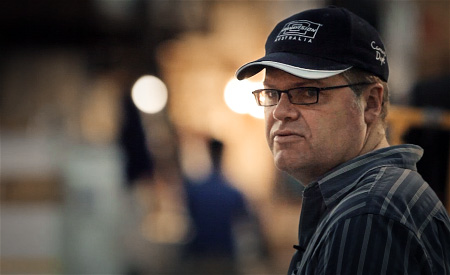
Mike Seymour: Bit Depth Fetishist
Mike Seymour of fxguide and fxphd loves his Canon 7D, but on the splendid Red Centre podcast he bemoans one shortcoming of its video mode more than all others combined: 8-bit files. Line-skipping, heavy compression, weird form factor? Mike’s not concerned about that nearly as much as he is the noise, banding, and crunchy chunky nastiness that he knows is lurking within those apparently lovely images, just waiting to pop out and bite him when he’s keying a sky or brightening a face.
Why Mike should relax: It’s just not that bad. It’s the compression more than the 8-bit recording that makes HDSLR video fall apart under stress. Get a good noise removal plug-in and watch your bit-depth magically appear to increase. And not every shot needs to be keyed. More professional photographers than will ever admit it shoot JPEG instead of raw. 8 bits is plenty if they’re the right eight bits.
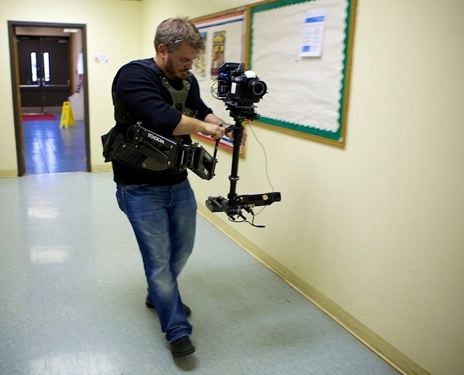
Vincent Laforet: Gear Fetishist
Have you ever seen a photo of Vincent Laforet without something really, really expensive in the shot with him? Something black-anodized and wireless? Vincent loves the toys. He’s been using them to make awesome images before he fell in love with making moving pictures—he’d use film cranes to place SLRs in precarious positions on New York landmarks, for example. Now Vincent is reliably the guy who will strap a $4,000 camera body to about $300,000 worth of camera support gear.
Why Vincent should relax: More than anyone I know, Vincent could make a beautiful film with nothing more than a camera, a 50mm lens and a tripod.
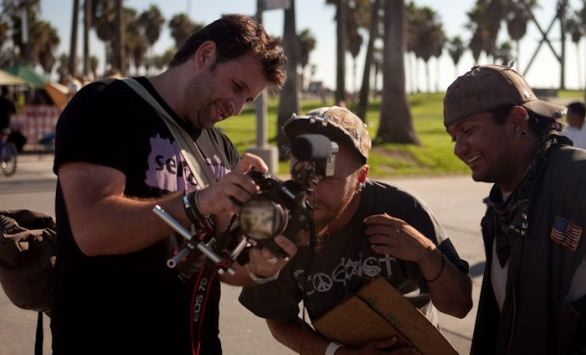
Philip Bloom: Boke Fetishist
Sorry Philip, there are so many shallow-depth-of-field mavens out there to choose from, but your fanaticism for it combined with your keen eye and willingness to approach complete strangers on the street with a giant Zacuto rig sticking out of your chest like a spinal surgery patient have probably sold more Canons than their own marketing department has. Philip has made focus hunting into an artistic choice rather than a technical failing. And really, on a medium-close shot with one nice, sharp eye, who wants to be distracted by a crisp eyelash?
Why Philip should relax: Most movies are shot on 35mm film (roughly equivalent to the 7D’s sensor size) at about f/4. Some of my favorite shots of Philip’s have literally several things in focus.
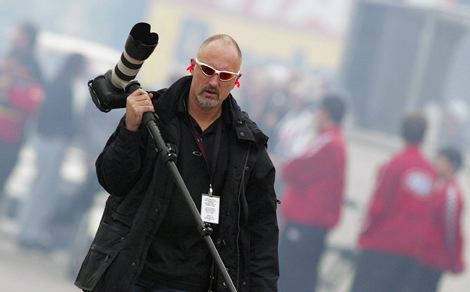
Jim Jannard: Resolution Fetishist
Jim Jannard, founder of RED Digital Cinema, recently wrote “If 1080P is really ‘good enough’… then there is no reason for RED.” He’s bet everything that people care a lot about spatial resolution. Not satisfied to make a 4K camera, Jim announced a complete line of cameras for the pixel reductionist ranging up to a 28K monstrosity. To Jim, quality comes from sharpness and detail.
Why Jim should relax: The highest-grossing film of all time was shot in HD and then cropped for projection on screens the size of football fields. If you see a ‘scope movie that was shot in HD, you’re looking at an image only 800 pixels tall. Movies move. They have tons of motion blur, are rarely perfectly in focus, and they are watched by people who don’t have perfect eyesight in theaters that are manned by “projectionists” who focus biannually.
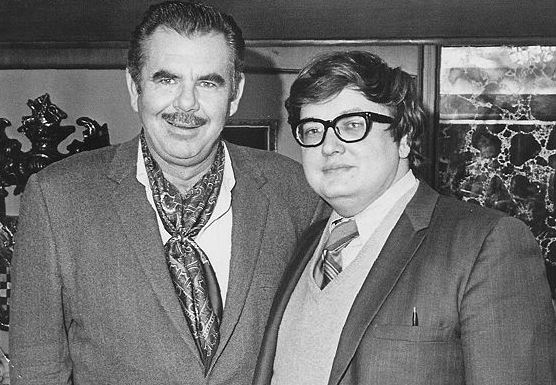
Roger Ebert: Frame-Rate Fetishist
Roger Ebert hates that wagon wheels go backwards. It drives him nuts. Years ago he saw a demo of Maxivision 48, a system that shoots and projects 35mm film at 48 frames per second, and he’s never forgotten how smooth it was. Like many, he decries 24 fps as a technological dinosaur, a holdover from a bygone era.
Why Roger should relax: With the advent of HD, it became easy to create digital moving images of high enough spatial resolution to pass for film (unless you’re Jim Jannard, see above), but at first we could only do so at 50 or 60Hz. HD video at 60 images-per-second inspired no filmmakers and no audiences—in fact, at the very Sundance I met Roger, a 60fps HD test shot by Allen Daviau was booed off the screen. It wasn’t until we hobbled our HD cameras to 24 that we could start making movies digitally. More frames-per-second is indeed smoother and more life-like. Just like video. Who would have imagined that audiences don’t want movies to feel more like daytime soap operas?
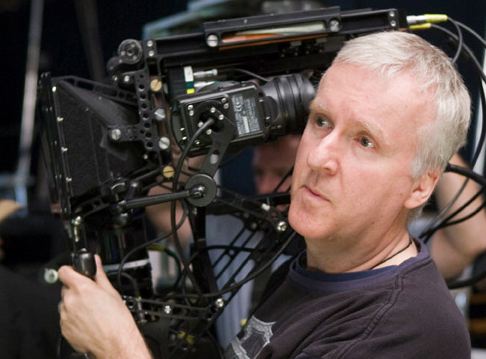
Jim Cameron: Depth Fetishist
I’m taking the hard road here by picking on a filmmaker I idolize, rather than the studio execs who see “3D” as just a longer way of typing the dollar sign. Jim uses the word I hate—immersive—to describe the effect 3D has on an audience. 3D is more “real” to him, more life-like.
Why Jim should relax: Jim has made some of the most immersive movies I’ve ever seen, and none of them needed an extra way to remind me that some stuff is in front of other stuff. 3D is an imperfect technology that has failed to win the love of moviegoers twice before. Movies work because they are larger than life. If you succeed at making them life-like, you run the risk of faithfully recreating the mundanity of the real world. Who would have imagined that audiences don’t want movies to feel more like plays?
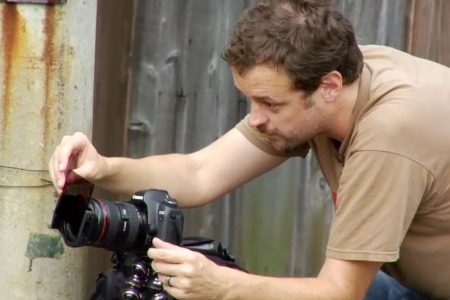
Stu Maschwitz: Accessibility Fetishist
I flatter myself to be in the company of the above luminaries, but fairness demands that I turn the lens on myself. I am biased against expensive things. I’ll talk your ear off about how After Effects runs circles around Flame, and then instantly forget all your scathing rebuttals of all the things Flame can do that AE can’t. I get off on accessibility, even if I don’t actually access it. I bought a Canon HV20 the week it came out, calling it the no-more-excuses camera. Well I must have been wrong, because simply owning the camera didn’t cause a film to get made by me with it. Filmmaking is hard, and I sometimes get too preoccupied with finding ways to make it easier.
Why I should relax: Usually you do get what you pay for. A cheap, crappy follow-focus is just a non-refundable down payment on the good follow-focus you’ll eventually buy. And it’s the fact that filmmaking is difficult that makes it worth doing. Movies capture the efforts of a few and turn them into an experience for the many. Try hard, then try harder, then try harder still—and then look next to you at a filmmaker who’s trying even harder. Chances are you have a favorite director whose work has never been the same since they got famous enough to stop killing themselves making their films.
I kid because I love
In case it’s not abundantly clear: I admire every single one of these fetishists (well, except that last punk). But we can all use a little reminder now and then that movies work. They’ve transported us, fooled us, moved us, terrified us, and turned us on for a hundred years, all without any yet-to-be invented bells and whistles.
Movies aren’t broken. Stop trying to fix them, and go make one.


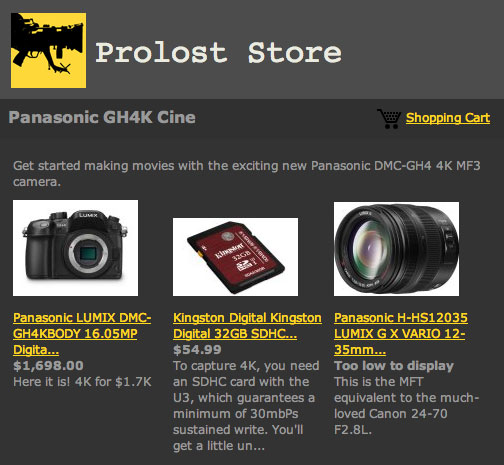






Reader Comments (93)
Thanks Stu,
I love your insights, and your work is inspirational! Great post!
Stu, I remember a skateboard-riding youngster in St. Paul who made great/hilarious stuff using Hi8 and Amigas.
Glad to see he's still there in the guy who's gone so far.
Every word of your post deserves endless repetition until the fetishists "get it" - presuming they ever will.
Oh, check your mail...
Stu, fun and revealing blog. I am also a bit of an "inexpensive" fetishist. I've tried to make my own "deluxe egg timer" for time-lapse and I tried to convince myself that a $49 tripod could serve as a run n' gun HD-SLR stabilizer.
My current problem is being able to convert my 1080p time-lapses all the way down to DVD quality for film festivals. The colors don't look right.
Can't those theatres all go out and buy Blu-Ray players and at least 1280x720 projectors already?
:)
Very interesting!
Why dont you have arm hair?
Cheers,
-Brian
This is by far your best post! Great read!
This post is legendary but I believe you kind of avoided your most obvious fetish "Which I hope you never loose" even when the Ebert segment made it evident.
Your grip to 24p for movie making.
I find 24p to be much better than Maxivision 48 and believe that 3D is a fad that I hope goes out the window soon unless it gets good enough that no glasses are required and it feels as a window into another world.
.
.
.
Rebel Math
.
------------> STU = Simplicity TUtor
.
Thx
:)
Apparently you can put Google in the "resolution fetishist" category as they now support 4K videos.
http://youtube-global.blogspot.com/2010/07/whats-bigger-than-1080p-4k-video-comes.html
Stu,
Thank you for providing some backup to comments I made to Philip Bloom on his page about which DSLR to buy:
http://philipbloom.net/2010/06/06/whichdslr/
I tried to explain that his obsession with "full frame", which is actually a VistaVision frame, is pointless since the look everyone is trying to ape is Academy Aperture 35MM. Needless to say, he missed the point and disagreed.
Of course, the fact that his experience on "Red Tails" involved an 11 stop should have told him a bit about how the real movie business works. Ask a 1st AC if they want to shoot wide open or stopped down. Ask a DP if he wants to risk shots being useless because everything was photographed at a 1.2. The film business shoots at low stops simply because it makes it easier to light, not because it gives ultra-shallow DOF, and the depth of filed is based on a 35mm *wide* image, not a 35mm *tall* image.
PeterM
Hilarious criticism and elements of 'trueness' throughout. That said, you're gonna get ripped for this one. Even if you did make a (somewhat weak) attempt at including yourself under your own knife.
"Most movies are shot on 35mm film (roughly equivalent to the 7D’s sensor size)"
I've clicked around your site as well as others and the above quote makes me wonder -- has anyone hacked (for lack of a better word) a 7D or 5D to use the full frame? Or rather, if they churn out 1080p images, but have a 35mm ish sensor size, is there a way to shoot larger than 1080?
When I first read DV Rebel's Guide, I always wondered became of the author. Did he achieve his dream of becoming a big Hollywood director? When I caught up with your life online, I realized that despite all your major successes (The Orphanage, Magic Bullet, endless commercials, VFX for Sin City, The Spirit, ProLost), you still hadn't reached your dream. I have no idea if that dream has shifted or changed in the last several years, but I always felt that was your ultimate goal was being a director on a decent budget feature.
I've always wondered why you hadn't succeeded. You seem incredibly talented, motivated, entrepreneurial, resourceful and from the large number of sycophantic comments, it seems like you've gained quite a loyal following. It just didn't add up. Hollywood should be knocking on your door. Far less skilled people have risen up in the past few years.
But for me, this post is a big clue as why: Your personality. I'm sure it feels good to complain and whine, even if you mask it as a joke. Any fool can criticize, condemn, and complain - and most fools do.
You're very talented and I hope do hit your dream one day.
@John Li,
Unless something's changed, I'm pretty sure Stu is actually involved on a feature as we speak. see post: http://prolost.com/blog/2009/10/13/psyops-announced.html
Stu,
It's been such a long time since you posted a film-making blog and it's totally worth the wait! Please do more!!
"Some of my favorite shots of Philip’s have literally several things in focus."
That kind of cracked me up.
One of the things I've noticed about many of the most prominent names in DSLR shooters, and this is absolutely not meant to be a slam, is that they are early adopters... what makes a lot of their preliminary work so valuable for the rest of us is that they are on top of the latest technology developments and have a keen interest not just in exploring the capabiities of the new tools, but generously sharing their findings with us.
I suspect, and this may not be borne out by what follows, that is there is a lot of incentive for them (the early adopters with large followings in the underbelly of the DSLR filmmaking beast) to focus on what is 'ahead of the curve' instead of riding the wave, instead of really coming into their own as storytellers with the tools they've so capably shown are revolutionary. For what it's worth, I really hope I'm way off base with this.
Like a lot of commenters, now knowing how good the equipment is, I'm eager to see the stories... I want somebody to blow my mind so completely with their story that I don't even bother to wonder what DSLR it was shot on or how they did it.
Anyway good post and plenty to think about. I'd love to see you do a post some day on the most overused visual cliches of today's DSLR filmmakers...
I'm in trouble, I would love to see/make an IMAX resolution 3D film shot and projected at 48 fps with lots of shallow depth of field shots! In the mean time, I'll keep working with my HVX200.
Stu, that was your finest post I've ever read. Thank you for all your contributions to the art, and for reminding that it IS art.
Thanks for this reminder, it's a taste of the same spirit that makes the Guide a great read.
In keeping with that, I'm shooting a music video next week with two gloriously unfashionable cameras: An HVX200, and a Chinon Super 8. We may use a DSLR for a B-camera, but it's a Canon T2i.
This is probably the most profound statement i have read since the hdslr craze has happened. I commend you Stu!
Great post, great advice. This may be the best column you've written yet. Thanks, dude!
Agreed. Best post yet! We should stop looking at out pencils and instead start writing. In our cases, filming! Cheers!
Great post and a very funny overview of these cool and exciting times, where the 'dream' cameras I spent years wishing existed now rest on the shelf at the local camera shop, just waiting for me to rake together the dough and buy one before I make my towering directorial masterpiece. Stu, if you do make a feature (micro or low or mid budget) I'm sure it'll rock as your hitman film on the book DVD was ace.
Nailed it Stu. Too true for truth itself.
What a great, seamless and original way to both express your respect for those guys, and also state your oppinion about the video "fetishes" we read about every day. Masterfull writing, this is.
Some times I think its a good thing that I don't know what I'm doing and I just go out and do it then I work out the rest later.
Robert Rodriguez: Low Budget Fetishist
Robert Rodriguez with a series of smash hits could convince just about any studio in Hollywood to write him a $300m check to create the next Avatar. Instead he produces films in the double digits. He's infamous for casting actors on different days to get them for less, shooting with only a single camera and budgeting ''good enough' VFX.
Why Robert Rodriguez should relax: Because he is talented and creates great work that almost always looks amateurish and 'cheap'. Film making is hard and expensive. You invest a lot of time and money into something you believe in. Cutting corners by composing only marginally adequate music yourself or signing off on VFX which look like it was made for a Syfy original movie takes the polish off of his otherwise great movies.
that was fun, thx!
Great photo of Russ Meyer with Roger Ebert during the production of "Beyond the Valley of the Dolls," which Ebert wrote and Meyer directed. That's one of my favorite films. They brought Meyer and Beyond the Valley of the Dolls to Orlando in 1997 for the CFFVF. It was a joy to see that film on print. (Cable and VHS at the time was only pan and scan for a film that used widescreen for some great jokes).
I love what your fetishists represent. I tend to find it annoying that it so often is so easy to break things down to nit picking over things that represent "the way we do things around here". I guess it if works for you, then so be it. Mike's issue is all about what is required for high end effects and image manipulation. Isn't it just possible that DSLR film makers aren't, repeat aren't going to be creating work that needs high end effects? The footage from my Canon 550D grades beautifully in Color when it's converted to ProRes. h.264 ... don't even think about it! Gear? Well, for too many guys it's all about the gear. At one sound stage in Chicago, there used to be examples of grip gear from "The Golden Age", when Blimped Mitchells were the standard. Why do many of us love the DSLR form factor? Small, light, great glass, stunning image ... fits in a corner in a real room, no studio set required. Aside from a decent magnifier finder, and maybe, just maybe a follow focus system, I'm not into a system that scares the bejesus out of your cast! Keep it simple! If you want the grip gear, go with a traditional form factor device and go big. As for Jim - I think well beyond Sony's insistence that film replacement was a stream of high end digital video information was their agenda a way of selling more TV stuff to a traditionally film based process. I like Jim's approach of replicating the traditional approach of one frame at a time. New capture devices will over time improve that process and it won't be long until whatever frame rate your project demands will be a reality. The temporal thing ... anyone ever seen anything projected material from Douglas Trumbull's Showscan system? 60fps 70mm on a huge screen - the frame size is so large there isn't even room for an optical sound track! Image quality ... looks like the best video you've ever seen! Sharp as a tack, spectacular image quality ... yet aesthetically dull. Just looks like hi-res video. for me it shows that the things we love about film do demand levels of softness that on TV would almost look out of focus. I do think that the DCI package recommendation of projection at 48 frames per second should make us rethink our frame rate. I'd like to see faster frame rates to minimise the annoying artifacts from 24 fps - personally I don't like the slurring during a fast pan, I want images to hold up better and I do think that doubling the fame rate gives me that - viz 720P vs 1080i. 60fps? No, no never!
As an educator and as a media activist, I do believe in access. To paraphrase Coppola, the future of film making is a person in a small town in a non-industry place with the tools and access to the tools. They will tell their story and it will resonate. Without access to tools to create images with quality, without tools to permit them to assemble the images and send them out into the world, they're a great idea whose time is yet ot come.
DSLR images are beautiful, perhaps a touch fragile, always better when worked with in an intermediate codec and used by someone who "measures twice, cuts once". and has a story to tell and an eye for an image. Other than that, it's just about a story.
Thats all Cr*p, Transformers has NO story but made b i g b u c k s. People like "Big-Splosions" and pretty pictures. They don't really want bokeh they want Anamorphic LENS FLARES!
Hollywood isnt built on stories its built on retreads, it makes money from less expense, so welcome DSLRs, yay cheap execs.
Great read BTW.
actually enjoyed the whole article felt the same way about many views and thank you for showing me your views even though they were wrong or right .. but one thing your are 100% right about it ... movie are not broken . stop trying to fix them and go make one haha priceless...
Respect Stu! What a fantastic read.
Hats off.
Mike
Great post! Admittedly I am a used lens fetishist.. Maybe it's time I buy a new one.. Tools, tools, tools, that's all everything behind the lens will ever be.. It's the ability to capture the magic, tell the story, and move the audience that we should all spend a little more time nurturing..
Love and Aloha, Kalani-
I almost cry, I kid, but is nice to read something like this.
I'm trying hard and every day ... well almot, trying to try harder, and some times i do.
Thanks for all youv'e been and keep sharing with us, I'm studdying my fauvorite subjects for free on the net with the help of people like you.
Cheers.
@ Gavin Greenwalt:
from a business perspective, looking at budget and revenue, the best films Robert Rodriguez has ever made are the spy kids ones
none of his other films has got three digit revenues
by the way: sony presented an interchangeable lens camcorder today, and it looks like an epic fail: 1080p30 encoded as 1080i60 AVCHD 24Mbps; but they do cite bokeh in the press release, duh
http://www.dpreview.com/news/1007/10071401sonynexvg10e.asp
Really enjoyed reading this post Stu. IMHO, your best post.
"Free at last, free at last! Thank God almighty, I'm free at last!" Now Dr. King and I are free from the tyranny of product development and gear lust. The real issue is that STORY, not resolution, is in short supply. But I still want my own personal IMAX camera (Epic 645). To serve the story of course...
"I admire every single one of these fetishists (well, except that last punk)"
I really hope you admire them all and the last sentence was a self deflating joke! I been following you since before your book was published and I hope you recognise how wonderful you are
I now know that I may never make a movie, but you have opened my eyes to a world of connections that has led me onto further worlds that have enriched my life.
thank you for being you
You are my new hero for this post... wow... unfortunately though, even if most of these gear fetishists go and make movies, very few of them will be good. God-given talent in filmmaking seems to have the exact same percentage of the gene pool to choose from as writing, painting, and all the other arts. As a matter of fact, festivals are choking under the weight of all the movies being made over the last few years and I'd argue that quality of storytelling has suffered immensely. Indies have died on the vine just when all these cheap, readily available gear should have minted us a crop of new Scorseses, Spielbergs, and Nolans. Shooting a movie is hard... but coming up with a great story, putting pen to paper, and filling 10, 20, or 150 blank pages is positively herculean in comparison. Resolution tests, shoot-outs, and whatever other gear fetishists do in their spare time are finite and (somewhat) scientific... figuring out what moves and entertains people is not.
Stu,
Great read this post! You so much remind us all not to lose yourself in gear and/or technology, but focus more on the story that needs telling and how to bring that across.
Also, I think you've just created a quote:
"Movies capture the efforts of a few and turn them into an experience for the many."
by Stu Maschwitz
Once again, wow!
Richard
I couldn't care less about 3D! It's about as immersive as a migraine. It's a fundamentally flawed technology because people are used to being able to focus their eyes on the things they look at. But if James Cameron decides that the foreground will be blurry, it's blurry no matter how hard your eyes work. In a 2D movie we understand that because we are looking at flat pictures and don't have those options. 3D is closer to "real" but still only a fraction of what makes up the process of human vision. They are giving us a Ferrari with a dirty windshield stuck in 1st gear...I do better in my Taurus.
RE: JOHN LI - Isn't he SENDING UP the complainers? The ones who always need more res, more bits, better DOF, a better camera, more gear before they finally make their masterpiece? I'll go so far as to call it what it is, TECH MASTURBATION... it's the equivalent of a writer cutting his own hair rather than writing. Or obsessing over the perfect paper and pen, the best desk, the best light, the best view from the window in order to actually do what's important, which is the actual writing.
And this blog is one of the few that talks about the gear and then you can also read a post about screenwriting software and what's wrong with it versus using something like Scrivener. That was very insightful and helpful... love that nested note card feature.
And you talk about what happened to 'that guy'... well how many people over at DVX or Red User have broken out of this tech rut? Some of the things people say on there with regards to being 'professional' are downright ridiculous. Needless to say, a lot of us have been waiting for a post like this so that some of these blowhards would shut the heck up (and I know and have worked with one very high profile tech genius who has sworn off the red and dvx boards completely) and actually show us that they know how to tell a compelling story that ropes in an audience beyond other people shooting movies.